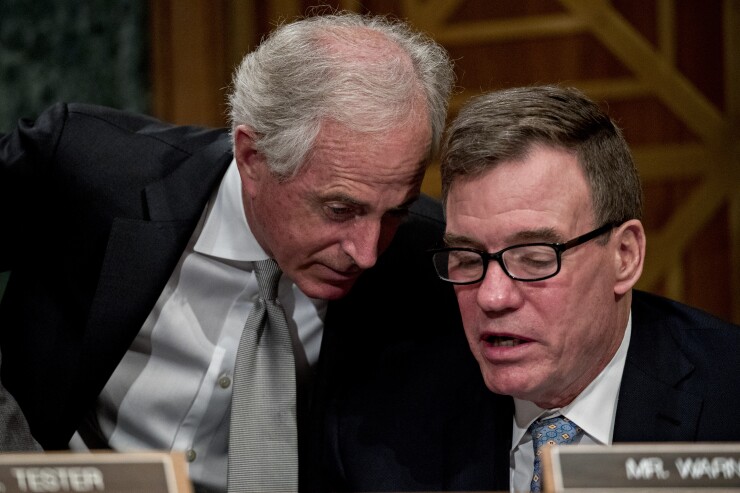Since not long after Fannie Mae and Freddie Mac were seized by the government a decade ago, policymakers have been circling the same idea for how to revamp the housing finance system.
Broadly speaking, that plan would privatize the two government-sponsored enterprises while providing an explicit federal backstop for the mortgage market.
Such an idea has been around since
While some details are different, the basic gist of the Corker-Warner bill was present in the Trump administration’s surprise proposal on housing finance reform issued on Thursday.

That plan would privatize the GSEs, and create a government fund that provides a federal guarantee for mortgage-backed securities, similar to the Federal Deposit Insurance Corp. system for consumer deposits. (The original Corker-Warner bill also would have created an FDIC-like system, though it would have done away with the existing GSEs in favor of new entities that performed much the same function. Both plans call for multiple “guarantors” beyond the existing Fannie and Freddie.)
The plan, tucked away in the larger government restructuring initiative from Office of Management and Budget Director Mick Mulvaney, was immediately praised by Corker, who noted the similarity.
“The framework unveiled today by Director Mulvaney is the right one and closely resembles the approach we laid out in recent legislative drafts developed on a bipartisan basis in the Senate,” said Corker, who is retiring at the end of the year. “I am hopeful the reorganization plan will help continue to grow support for the need to address the last unfinished business of the financial crisis.”
Mulvaney’s GSE plan has a solid foundation with plenty of backing from industry advocates who have long seen such a move as necessary, but its Achilles' heel may be that it is not yet clear how it will get around flaws that helped doom the Corker-Warner plan four years ago.
For one, it doesn’t address community bank concerns that a new FDIC-like system will leave them at the mercy of multiple guarantors that either are owned by megabanks or give volume discounts to the largest institutions, leaving smaller ones at a disadvantage. Both the Independent Community Bankers of America and the Community Home Lenders Association released comments that praised Mulvaney for raising the topic of GSEs, but also sounded notes of skepticism.
Ultimately, getting community bank support is make or break if any GSE plan will succeed. It will be hard enough to get bipartisan support for a bill given the hyperpartisan nature of Congress and fears that transitioning to a new system could disrupt the mortgage market. If community banks oppose a bill, it will be dead on arrival.
And that’s not the plan’s only challenge. Its affordable housing provisions are highly unlikely to pass muster with Democrats, who are necessary to get a 60-vote threshold. There are also a host of details that need to be cleared up.
“There is no discussion of how the enterprises recapitalize or what happens to the government's ownership stake,” wrote Jaret Seiberg, a policy analyst with Cowen Washington Research Group, in a note on Friday. “Those are two major obstacles to action. It also endorses curbing the affordable housing obligations of the enterprises, which is a nonstarter with Democrats. And there is no plan on how to get new entrants as guarantors.”
This is not to say that the Trump administration can’t overcome these problems. The plan is not a radical one, which means it can gain support, and it is still clearly in its early stages. Moreover, GSE reform was never ripe for this year anyway, giving the administration time.
But what’s surprising is that even four years after the Corker-Warner bill failed, the Trump plan makes no attempt to get around the obstacles that have stalled or killed similar efforts in the past. At some point, that has to happen, or it will be end up as just one more plan gathering dust on the shelf.
Bankshot is American Banker’s column for real-time analysis of today's news.





